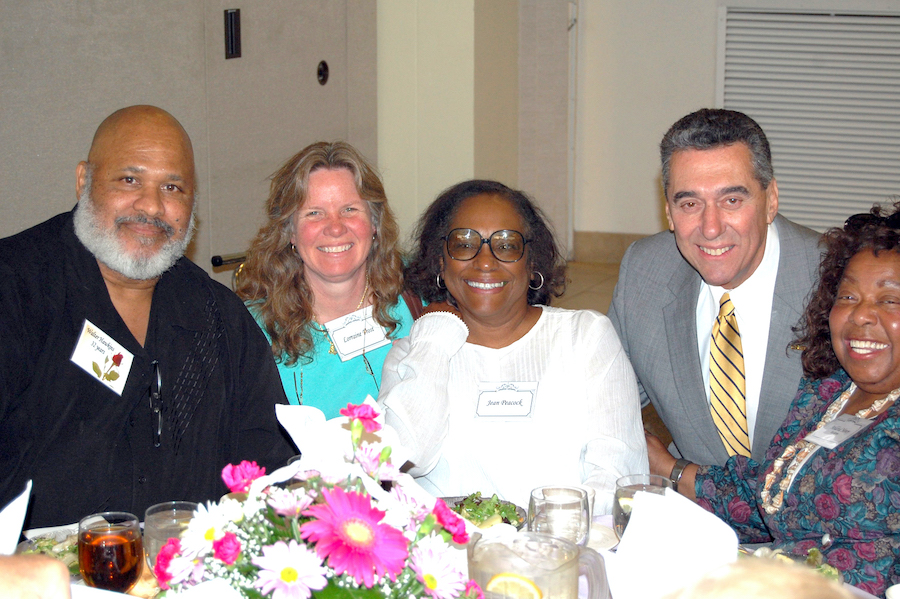Black, Indigenous and Latino folks need to have a real conversation about what can make them all great as a winning political combination
By Dr. G.S. Potter | Contributing Editor | b |e News
As many have already heard, actress Eva Longoria is under fire for these comments…
Eva Longoria under fire after her interview with @MSNBC about Biden’s victory:
— Pop Crave (@PopCrave) November 9, 2020
“The women of color showed up in big ways. Of course, you saw in Georgia what Black women have done but Latina women are the real heroines here,” pic.twitter.com/VBcgdTq3cr
Naturally, there was a fierce backlash (for the most part, on social media), and she was forced to make a clarification…
Eva Longoria apologizes and clarifies why she said Latinas were ‘the real heroines':
— Pop Crave (@PopCrave) November 9, 2020
"When I said that Latinas were heroines in this election, I simply meant that they turned out in greater numbers and voted more progressively than LATINO MEN," pic.twitter.com/60wSq2vxMU
So, here we go again, imagine that: the media using a celebrity to spit a divisive talking point to split people of color. Except, in this particular situation, Latinxs get actors instead of rappers.
In light of this, there is a real need for a conversation on coalition building. And, maybe, after that conversation we can understand what makes coalitions coalitions – and how intertwined our political fates are given the circumstances we face as what is regularly known as “BIPOC:” Black, Indigenous, People of Color. We’re not all the same, that goes without saying, the complexities in terms of history, culture and specific needs are there. But, we are all on the front lines of a war waged against us by white supremacy and we find a common existential threat from that against our well-being and future.
Yet, many of us still don’t realize how powerful we are united against that.
We all need to lead a coalition. The Black community must lead a coalition of people of color, as hard as that may seem, if it’s going to win. Group nationalism won’t work here, especially when Black folks are outnumbered by Latino communities – and, we’re all still outnumbered by Whites in this country. But, imagine how powerful we are as a united front.
We have to be careful about getting too immersed in a debate over which “people of color” had it worse than the other or who lays claim to what piece of American land. The United States is, still, originally Indigenous land and Indigenous people have been nearly wiped out as a result of white supremacists and imperialists stealing it. American history is a horrific tale of Black slavery, as well as a horrific tale of Brown and Red slavery. Our collective legacy is a tale of poverty, deliberate miseducation and incarceration. We are all reacting to colonialism, not just Americanism. We are all being targeted with the same vicious nuclear arsenal of racism by the same people, just in different languages and thought processes.
This is the part, however, that many folks don’t want to talk about. Every group, instead, wants to say they have it the worse and to hell with everyone else and that’s their claim. But, that’s how crab-barreling works. For example: I’ve personally seen how this plays out in grassroots homeless organizing. We’re all homeless and being beaten, shot, or about to die – but, sure, let’s fight over whether or not this person that’s Indigenous and Black has it worse than this other person that’s Mexican and Black because that’s all you think gives you power.
That’s why it’s important to hold court on expertise and how it relates to organizing. Yes, sometimes being Black makes you the expert on certain things. Sometimes, it doesn’t. Know when to hold that court … or everyone is Kanye or some random Black intellectual who is promoted by White-owned media.
Anti-immigrant sentiment is great for White folks, that’s why it’s one of the more baseless fallacies that Brown folks are stealing their jobs. It’s also a false assumption that a middle-class Black person (who is actually “working class” when compared to actual White middle-class) has it harder than an immigrant field worker living in a tent and getting beaten daily by police. Homeless Brown folks and Black folks, together, are still getting beat up sleeping on carboard boxes.
We need to acknowledge historical and current policies and patterns of treatment and respond accordingly as a coalition. We don’t need to crab barrel ourselves into a white nationalist utopia. So, we’ll need to have a serious Black and Brown conversation in a way that still puts Black folks at the forefront but not in a way that says “me before you” to Indigenous and Brown folks. It must say “all of us” according to need.
 Westside Story Newspaper – Online The News of The Empire – Sharing the Quest for Excellence
Westside Story Newspaper – Online The News of The Empire – Sharing the Quest for Excellence

